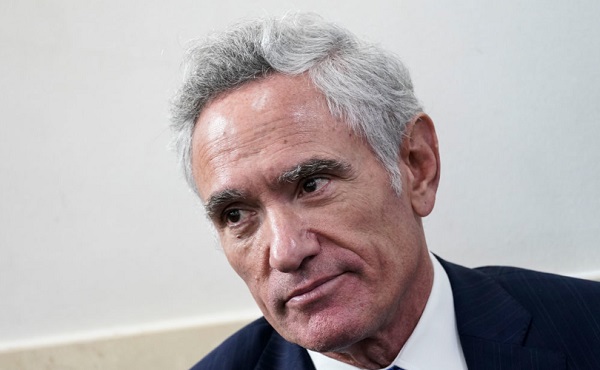Alberta
Statement from Premier Danielle Smith regarding Ethics Commissioner’s Report
From the United Conservative party
Ethics Commissioner Confirms CBC and NDP lies regarding Crown Prosecutor Contact; Premier to seek formal guidelines on future policy discussions with Justice Minister
(May 18, 2023) — Danielle Smith, Leader of the United Conservative Party of Alberta, issued the following statement:
“I was gratified to read the Ethics Commissioner’s findings confirming that neither I, nor anyone in my office, tried to or did contact any Crown Prosecutors regarding any COVID-19 prosecutions.
“This confirms that the CBC and NDP have repeatedly lied to Albertans for months with false accusations stating that my office and I had done so. Both the CBC and NDP should apologize and withdraw those false accusations immediately and publicly. They should also apologize to Alberta’s independent Crown Prosecutors and Civil Service for repeatedly questioning their integrity in addressing these matters.
“As to my discussions regarding COVID-related charges and violations with my Minister of Justice, Tyler Shandro: I have always stated I wanted to find a path of amnesty for those charged with non-violent COVID-related offences and violations during the pandemic.
“As I have explained before, I spoke with Minister Shandro, who is an experienced lawyer (I am not) as I was very interested in his advice on what could legally be done about this. He gave me his advice on the matter and, as the Commissioner has also confirmed, I accepted it. It went no further after that.
“In the Commissioner’s opinion, I had a discussion with Minister Shandro that was inappropriate regarding this subject.
“I invited the Commissioner to give me and future premiers the benefit of some guidance on how to advance sensitive policy issues similar to this with the Minister of Justice if she thought there was a more appropriate way.
“Although she has yet to offer a different approach or advice for me to consider in this regard, I will be seeking legal advice on creating specific formal guidelines as to when and how a Premier may speak with a Minister of Justice in the future about policy issues and other sensitive matters in order to respect all applicable rules and conventions. I will be asking the Ethics Commissioner to review those guidelines, once drafted, in order that her advice and input are incorporated.
“As to Mr. Pawlowski, a verdict in his case has been rendered by the Court and the matter is now closed.
“Given that various false and defamatory statements are now confirmed to have been made by the CBC and NDP in this matter against me and several individuals in my office, this matter remains the subject of potential civil litigation. I will confer with my counsel on what next steps are to be taken after the election.
“I look forward to spending the remainder of the campaign talking about issues that Albertans are focused on – namely the economy, jobs, affordability, public safety and healthcare.”
Alberta
Alberta takes big step towards shorter wait times and higher quality health care

From the Fraser Institute
On Monday, the Smith government announced that beginning next year it will change the way it funds surgeries in Alberta. This is a big step towards unlocking the ability of Alberta’s health-care system to provide more, better and faster services for the same or possibly fewer dollars.
To understand the significance of this change, you must understand the consequences of the current (and outdated) approach.
Currently, the Alberta government pays a lump sum of money to hospitals each year. Consequently, hospitals perceive patients as a drain on their budgets. From the hospital’s perspective, there’s little financial incentive to serve more patients, operate more efficiently and provide superior quality services.
Consider what would happen if your local grocery store received a giant bag of money each year to feed people. The number of items would quickly decline to whatever was most convenient for the store to provide. (Have a favourite cereal? Too bad.) Store hours would become less convenient for customers, alongside a general decline in overall service. This type of grocery store, like an Alberta hospital, is actually financially better off (that is, it saves money) if you go elsewhere.
The Smith government plans to flip this entire system on its head, to the benefit of patients and taxpayers. Instead of handing out bags of money each year to providers, the new system—known as “activity-based funding”—will pay health-care providers for each patient they treat, based on the patient’s particular condition and important factors that may add complexity or cost to their care.
This turns patients from a drain on budgets into a source of additional revenue. The result, as has been demonstrated in other universal health-care systems worldwide, is more services delivered using existing health-care infrastructure, lower wait times, improved quality of care, improved access to medical technologies, and less waste.
In other words, Albertans will receive far better value from their health-care system, which is currently among the most expensive in the world. And relief can’t come soon enough—for example, last year in Alberta the median wait time for orthopedic surgeries including hip and knee replacements was 66.8 weeks.
The naysayers argue this approach will undermine the province’s universal system and hurt patients. But by allowing a spectrum of providers to compete for the delivery of quality care, Alberta will follow the lead of other more successful universal health-care systems in countries such as Australia, Germany, the Netherlands and Switzerland and create greater accountability for hospitals and other health-care providers. Taxpayers will get a much better picture of what they’re paying for and how much they pay.
Again, Alberta is not exploring an untested policy. Almost every other developed country with universal health care uses some form of “activity-based funding” for hospital and surgical care. And remember, we already spend more on health care than our counterparts in nearly all of these countries yet endure longer wait times and poorer access to services generally, in part because of how we pay for surgical care.
While the devil is always in the details, and while it’s still possible for the Alberta government to get this wrong, Monday’s announcement is a big step in the right direction. A funding model that puts patients first will get Albertans more of the high-quality health care they already pay for in a timelier fashion. And provide to other provinces an example of bold health-care reform.
Alberta
Alberta’s embrace of activity-based funding is great news for patients

 From the Montreal Economic Institute
From the Montreal Economic Institute
Alberta’s move to fund acute care services through activity-based funding follows best practices internationally, points out an MEI researcher following an announcement made by Premier Danielle Smith earlier today.
“For too long, the way hospitals were funded in Alberta incentivized treating fewer patients, contributing to our long wait times,” explains Krystle Wittevrongel, director of research at the MEI. “International experience has shown that, with the proper funding models in place, health systems become more efficient to the benefit of patients.”
Currently, Alberta’s hospitals are financed under a system called “global budgeting.” This involves allocating a pre-set amount of funding to pay for a specific number of services based on previous years’ budgets.
Under the government’s newly proposed funding system, hospitals receive a fixed payment for each treatment delivered.
An Economic Note published by the MEI last year showed that Quebec’s gradual adoption of activity-based funding led to higher productivity and lower costs in the province’s health system.
Notably, the province observed that the per-procedure cost of MRIs fell by four per cent as the number of procedures performed increased by 22 per cent.
In the radiology and oncology sector, it observed productivity increases of 26 per cent while procedure costs decreased by seven per cent.
“Being able to perform more surgeries, at lower costs, and within shorter timelines is exactly what Alberta’s patients need, and Premier Smith understands that,” continued Mrs. Wittevrongel. “Today’s announcement is a good first step, and we look forward to seeing a successful roll-out once appropriate funding levels per procedure are set.”
The governments expects to roll-out this new funding model for select procedures starting in 2026.
* * *
The MEI is an independent public policy think tank with offices in Montreal, Ottawa, and Calgary. Through its publications, media appearances, and advisory services to policymakers, the MEI stimulates public policy debate and reforms based on sound economics and entrepreneurship.
-

 2025 Federal Election2 days ago
2025 Federal Election2 days agoHarper Endorses Poilievre at Historic Edmonton Rally: “This Crisis Was Made in Canada”
-

 2025 Federal Election2 days ago
2025 Federal Election2 days agoMark Carney’s radical left-wing, globalist record proves he is Justin Trudeau 2.0
-

 conflict2 days ago
conflict2 days agoZelensky Alleges Chinese Nationals Fighting for Russia, Calls for Global Response
-

 2025 Federal Election2 days ago
2025 Federal Election2 days agoAn In-Depth Campaign Trail “Interview” With Pierre Poilievre
-

 2025 Federal Election17 hours ago
2025 Federal Election17 hours agoConservative Party urges investigation into Carney plan to spend $1 billion on heat pumps
-

 Business2 days ago
Business2 days agoTrump’s tariff plan replaces free trade with balanced trade. Globalists hate that.
-

 Censorship Industrial Complex2 days ago
Censorship Industrial Complex2 days agoScott Atlas: COVID lockdowns, censorship have left a ‘permanent black mark on America’
-

 2025 Federal Election2 days ago
2025 Federal Election2 days agoDon’t double-down on net zero again





